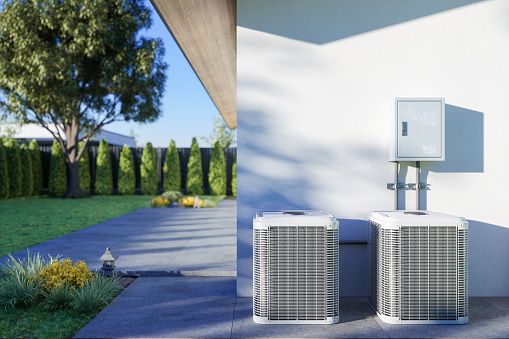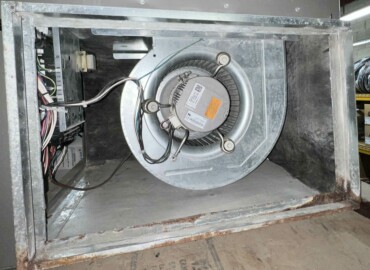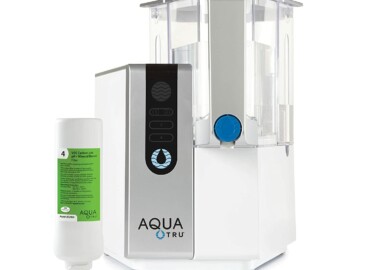21 Common Air Conditioner Problems with Solutions
Air conditioners are a must-have appliance in many households and businesses, especially during the hot summer months. They provide us with cool and comfortable air to help us beat the heat. However, like any other appliance, air conditioners can develop problems over time that can affect their performance and efficiency.
In this blog, we will discuss 21 common air conditioner problems and their solutions.
21 Common Air Conditioner Issues and Solutions
1. Polluted air filters
Filters are the most important counterpart in air conditioners that help keep the airflow free and clean while keeping out pollutants and dust. Restricted airflow can be caused by a clogged air filter, resulting in reduced efficiency. This can happen for a few reasons: the dirt particles are not cleaned for a long time or get stuck in the filter.
Solution:
The air conditioner you use might have replaceable filters. If so, removing or replacing is the solution to keep your ac away from dirty filters. Some ac come with reusable filters that can be cleaned with a damp cloth or washed with water. Before reinstalling it, let them allow drying thoroughly.
2. Leaking from the indoor unit
If your AC maintenance is unsettled, you may experience water leaking inside the unit. This may be due to the unit’s condensate drain being clogged. Fungi or often algae build-up that move the water back up the line, eventually throughout your home. Pipe blockages can be caused by the growth of algae or fungus, which results in water backing up into your home. In addition to this reason, it can happen if your condensate pump is broken and needs to be replaced.
Solution:
This problem can be resolved with a DIY solution or a technician’s assistance. With a dry or wet vacuum, you can clear clogged condensate pipes. Instead, you can pour vinegar down the drain line to prevent algae or fungus from forming. The adequate location of the drain pipe within your AC may vary, so it is advised to read the user manual in advance.
3. Refrigerant loss
AC refrigerant plays a crucial role in making the air cool without your unit. As the name implies, it is the liquid via which an AC cools your space. This is one of the frequent AC system issues as well as can get worse efficiency of your air conditioner. It can occur because connections have worn out over time, harsh quivering weakened the refrigerant lines or outer damage to your ac. In addition to affecting efficiency, this can be hazardous to the environment and human health.
Solution:
Minor leaks can be easily fixed with simple fixes. If you find major damage to the pipe, you’ll need to replace the entire line. In case of recharging the refrigerant, avoid undercharging and overcharging. If the refrigerant charge meets the manufacturer’s specifications, your unit’s performance remains unchanged. Finding a leak at home is easy in a variety of ways.
4. AC condensate leak
During summers, the homeowner might notice that water collects under the air conditioner’s compressor outside the home. Condensation leaks can cause due to various reasons, such as broken condensate pans, dry air filters, improper installation, and poor AC seal.
Solution:
If spotted this AC problem, you need to follow a few steps. First, turn off your unit and cut off the power supply. If the issue is not resolved promptly, things can worsen. In this case, you will need to contact an expert.
5. Ice buildup on the evaporator coil
Building ice on the evaporator coil can lead to the air conditioner won’t work properly. This issue can cause when your AC doesn’t get enough air to function normally because of the debris being formed. The accumulating dirt on the coils prevents the airflow, and hot air doesn’t reach the refrigerant. For this reason, the moisture on the coils freezes, and the refrigerant becomes too chilly.
As time passes, the coil is encased with ice, preventing the refrigerant in the coil from absorbing latent heat. As a result, it can disturb the smooth flow of air in your space.
Solution:
Inspect the damage if you notice this issue. Afterwards, let the evaporator coil defrost. Don’t use your AC during this meantime, and ensure the power is off. It usually takes 1 day for the evaporator coil to melt thoroughly.
6. Capacitor breakdown
This is an essential counterpart that provides the motor with initial support to begin functioning. An unexpected on-and-off of your AC system, often escorted by a clicking noise, can be an indication of a potential issue with the capacitor. When your appliance works in the hot summer, its capacitor can overheat. Frequent alteration and power fluctuations can also harm AC’s capacitor.
Solution:
To offer a quick look at your unit, call a professional. However, you cannot fix this problem on your own as there are many risks associated with it.
7. Compressor failure
A compressor in Ac helps regulate the AC pressure, and in return, refrigerants carry out heat. Compressor failure can be the result of changes in the level of refrigerant, clean coils and lack of lubrication. The compressor will stop working when it overheats, and there is insufficient refrigerant.
Solution:
If a compressor problem is detected, call your nearby AC service to resolve this issue. But, if there is serious damage, ask for replacement instead of repair.
8. Causes bad Smell
Knowing what type of odour your unit causes makes it easier to pinpoint the problem. Let us understand with an example; some AC unit produces a pungent odour due to mould growth, while others produce the smell of fire due to burning components inside the unit. If there is a smell of gas, it may be a leak of methyl mercaptan, which can be extremely dangerous. Unpleasant odours can also result in the death of birds and insects living inside the unit.
Solution:
Just clean off your AC system when taking it out after an ideal duration. In case of gas leakage and electrical problems, you should contact a professional for assistance.
9. Ac fails to start/on
When noticing problems with your AC unit, the most common possibility is switching on the unit and not hearing any noise. Faulty or broken wiring harnesses can cause this. To deal with this problem, you will need to reset it at the circuit breaker panel. Still not working? There is a problem with your unit’s thermostat, which the blower belt may cause.
Solution:
Check the circuit breaker, thermostat setting, and air filter in this case. If the problem exists, call a professional for additional inspection.
10. Ac fails to off
Grime and dust in the AC filter can cause the AC to run continuously or not reach a set temperature. This could be due to frozen AC coils. On the other hand, if there is a problem with the controls, check and replace your thermostat.
Solution:
This can be easily resolved with consistent care and maintenance.
11. Polluted/Leaking Ducts
The ductwork in ducted ac units plays an important role in carrying cold air throughout the home. If a hole or leak is spotted, AC’s performance will significantly reduce. It will also affect the overall quality of air because the holes in it can trap pollutants and dirt. This additional pollutant can also block the air filters, resulting in heating or uneven cooling.
Solution:
Use foil-faced tape to seal the leaks. As a longer-term option, use mastic air duct sealant as a stick substance that hardens and gasps after it dries. Or, contact an HVAC professional to further diagnosis.
12. Airflow problem
If experiencing pressure imbalances, or hot or cold drafts, it is definitely an HVAC airflow problem. A faulty blower motor, dirty air filter, low refrigerant levels, vents blockage, and leaking ducts can cause this issue.
Solution:
Try recalibrating for a faulty thermostat. Clean the filters to improve the airflow. Consult an HVAC expert for an audit if you can’t figure out the problem.
13. Air conditioning fan fails
If the fan outside the home space doesn’t work efficiently, it means proper heat transfer doesn’t happen. The AC compressor may trip or overheat in this situation. If the compressor is damaged internally, it can go bad. In this case, you will need to replace your AC.
Solution:
Simply remove the outer casing and visually monitor the issue. Though, in most cases, it might be daunting for one to inspect an AC unit issue.
14. Annoying noise
The AC may make annoying abnormal, or rattling noises, which could be due to operational inefficiency. As a result, it will increase your electricity bills. This noise is like whistling or moaning. You may need to inspect the ventilation points of your AC system.
Solution
With adequate inspection and maintenance, taking care of unusual or annoying sounds can be possible.
15. Circuit breaker keeps interrupting
Frequent tripping can be caused by a variety of problems, such as dirty coils or filters, capacitor failure, power surges, problems with the circuit breaker itself, low refrigerant levels, and compressor failure.
Solution:
Instead of solving this by yourself, you should contact an expert.
16. Thermostat fault
Thermostat fault in AC is one of the common issues. This can be caused by rust or dust build-up as well as loose wires or screws. Additionally, improper calibration may cause the thermostat to not operate properly.
Solution:
Ensure the batteries are working adequately if you own a battery-operated thermostat. If there is corrosion or dust build-up, clean it well.
17. Grimy fan blades
Pollution and fog on blades slower down the efficiency of your AC, especially the fan in the outside unit. Multiple layers of dirt and grime can put a burden on a motor of ac and cause damage.
Solution:
Regular cleaning of fan blades will reduce airflow issues and ensure smooth operation.
18. Blockage
Dirt and debris clog AC’s drainage pipe, restricting the condensate from flowing through the drainage system. Due to such reasons, your AC system begins leaking water.
Solution:
Regular cleaning of the AC can avoid this issue. If the issue is severe, replacing the damaged component is a must.
19. Loose connection
Various power wires convey current to numerous parts of AC’s components. Wires can lose contact with the power source as time passes. When this happens, more damage can be caused by current and damage to damaged parts.
Source:
Avoid fixing by yourself as it can be harmful. To prevent additional AC problems, contact an expert immediately to ask for a fix.
20. Install a new AC contactor
Contactor means switch, found in the outside part of the AC system. This switch helps maintain the desired temperature as well as turns your system on and off. With overtime use, it can cause operating problems or can wear or tear.
Solution:
Replacing it after a few years will increase the life of your AC.
21. Model and size of AC
Knowing the adequate size and dimension of the AC unit will help you care for and maintain it easily. With the help of expert technicians, you can choose the right model.
Solution:
The size and dimension should be picked based on home space and frequency of use.
Bottom Line:
Above are some of the AC problems which are one of the most common and most experienced AC issues by owners these days. If you are experiencing the same, contact a professional technician for further assistance and suggestions.
Hopefully, the blog will be helpful. Comment, and if you have any other solution, then mention it.
If you have any of the following issues in the GTA region, call us to get your air conditioner repaired by professionals in Toronto.




